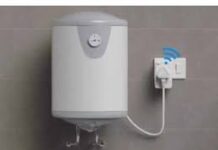Do you dread the arrival of rain, not just because of how dreary it can make things feel but also because it often brings pesky pests with it? Unfortunately, pest infestations are an unwelcome side effect of wet and humid weather. Whether dealing with mice or roaches, too much moisture can create a thriving environment for these uninvited creatures to reside in your home. The good news is that there are steps you can take to prevent these types of infestations from occurring in the first place. In this blog post, we’ll discuss practical tips on preparing your house against unwanted guests when there’s excess rain.
Reasons Why Rainy Weather May Lead to Pest Infestations
Climate plays a significant role in determining which type of pests will try to make your home their own. Excessive moisture is like an invitation for certain insects and rodents, providing them with the ideal conditions they need to survive. Here are some reasons why this may happen:
• Warm and wet environments provide great habitats for insects and spiders to reproduce and multiply. Warmer and more humid environments can create excellent habitats for pests like insects and spiders. With increasing temperatures and abundant rain, pests can proliferate in these environments with little interference. Unfortunately, the pests can quickly become a nuisance to people by getting into their homes, spreading diseases, and destroying crops.
• Excess moisture can lead to water leaks, creating damp areas that attract pests. Excess moisture is an issue that can create problems in any home or building. As rain or other sources of moisture enter, they seep into the foundation and eventually lead to water leaks. This can be extremely detrimental, as not only will you have to repair the source of the leak, but damp areas often become ideal habitats for pests – pests that bring with them their own set of problems.
• Standing water in rain gutters and other low-lying areas provides mosquitoes with a great breeding ground. Standing water in rain gutters, bird baths, and other low-lying areas can provide pests like mosquitoes with a great breeding ground due to their abundance of standing water during and after rain. This can be especially problematic, as mosquitoes are notoriously attracted to standing water and create a risk of pests spreading illnesses in the surrounding area.
• Pests like rodents don’t want to be wet as much as people do, and they are attracted to homes with plenty of food and water. So during wet weather, rodents need more food and water than usual to survive the cold – making your home a prime location for them to take up residence.
How to Protect Your Home from Pest Infestations During Rainy Weather
Now that we understand why rainy weather can lead to more pests, here are some practical steps you can take to help protect your home:
• Repair any water damage or plumbing leaks immediately: If you find that your home has experienced any water damage or leaks due to rain, address these issues as soon as possible. Repairing the source of the leak will go a long way in preventing pests from taking up residence in your home.
• Inspect your home for damp areas and cover them: Take some time to inspect all areas for any signs of dampness or standing water. If you find any, try to cover these areas using plastic sheeting or other materials that will reduce the amount of moisture in the area.
• Keep food and garbage away from your home: Make sure to keep all food sources (including pet food) as far away from your home as possible. This will reduce the chances of pests being attracted to your home in search of a meal. Also, ensure that all garbage is sealed and disposed of quickly.
• Keep your gutters clean: Regularly inspect and clean out your rain gutters, as clogged and overflowing gutters are a great breeding ground for mosquitoes.
• Install screens and weather stripping: If you notice any gaps or cracks around windows and doors, install screens to keep insects out and apply weather stripping to reduce drafts. These measures will go a long way in making your home less inviting to pests.
• Make sure windows are tightly closed to keep out flying pests: During wet weather, flying pests like termites, mosquitoes, and moths can easily enter your home through open windows. So make sure to keep all windows tightly shut when not in use.
• Use fans or dehumidifiers to reduce moisture levels in the home: If your home has a lot of dampness, use fans or dehumidifiers to help reduce the moisture levels in the air. This will make it less inviting for pests.
• Use baiting and trapping systems: If you have issues with rodents in your home, consider using bait and trapping systems to help get rid of them. This will help reduce the number of pests in your home and make it less inviting to new ones.
• Call a pest control professional: If you still have issues with pests despite taking the above steps, it might be time to call a pest control professional. They can help identify any areas where pests may be entering your home and advise how to best protect your property from further infestations.




















